How to Make Soursop Tea
Soursop tea is an exotic, herbaceous brew made with the leaves of the soursop or graviola tree (Annona muricata). To make the tea, add the leaves to a pot of boiling water on medium heat and brew for 30 minutes. Turn off the heat and leave to steep for the same time. Strain, sweeten and serve for this unique tea.
There are lots of claims about the benefits of the soursop tea. I’ll cover only the proven benefits below.
As an Amazon associate, I may earn a small commission on qualifying purchases.
Soursop Tea Ingredients
For this recipe, you will need:
- soursop (graviola) leaves: You can use fresh or dried and young or mature leaves. Dried, mature leaves give a darker, stronger tea. Young, fresh leaves make a milder, pleasant tea. You can find soursop leaves on Amazon.
- water
- sweetener: this is optional but highly recommended. Use sugar, honey, or any sweetener of your choice.
- milk: this is optional. You can use regular milk or dairy free options like coconut milk or nut milk.
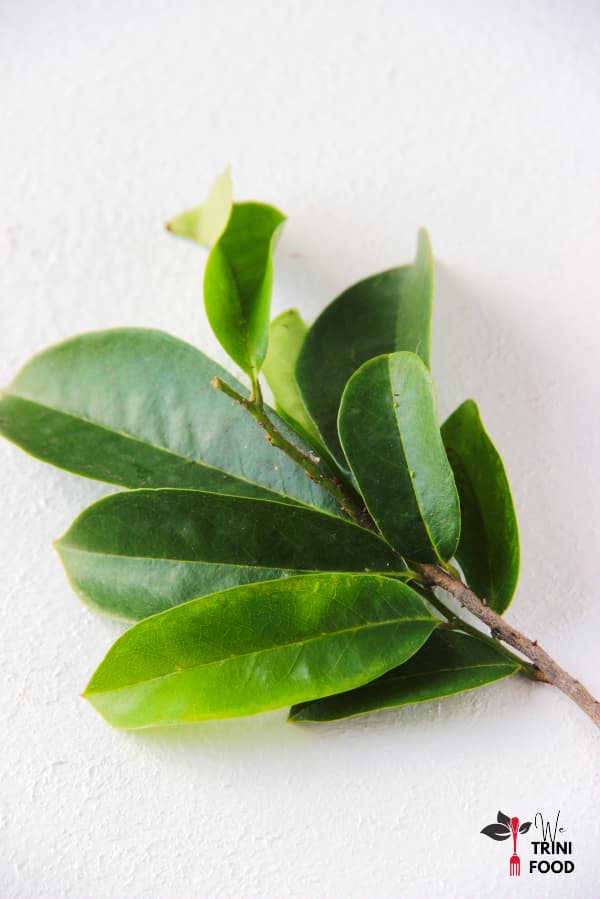
How to Make Soursop Tea
Step 1: Place a small pot on the stove on medium heat. Add the water and bring to a boil.
Step 2: Wash the soursop leaves to remove any dust from the leaves.
Step 3: When the water is boiling, add the leaves. Stir and brew for about 30 minutes.
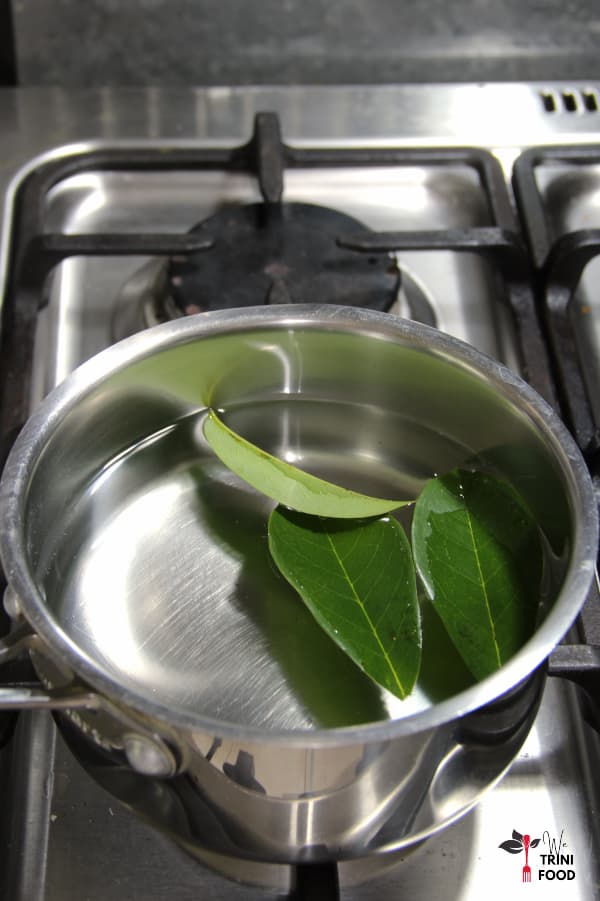
Step 4: After the brewing time, turn off the heat and leave the tea to steep for at least 15 minutes. The tea will darken even more in that time.
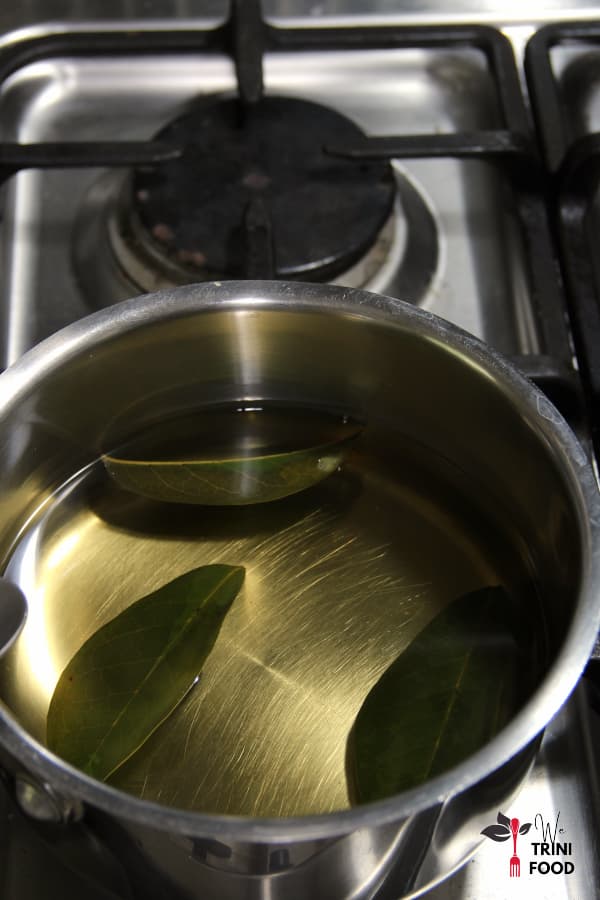
Step 5: Strain the tea.
Step 6: Sweeten with your choice of sugar, honey, or any of your favorites. Feel free to add milk too at this point. Serve hot.
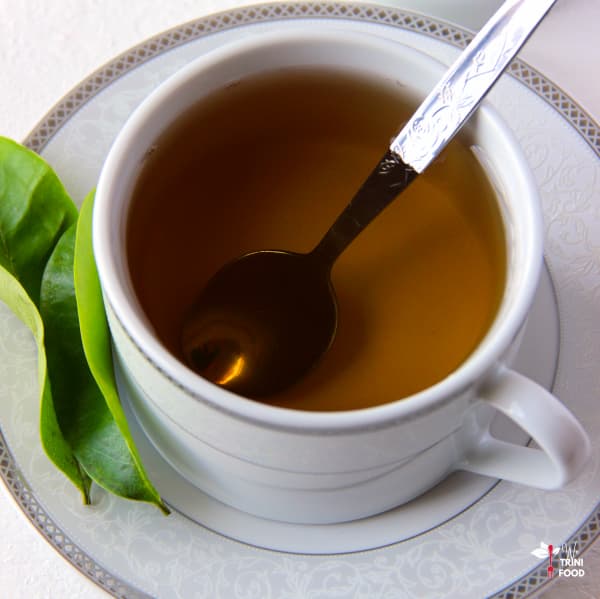
What is soursop tea good for
There are many studies that have tested the health benefits of soursop, its leaves, and its tea extract. Most of them are lab studies, though there are a few small clinical ones as well. For the most part, most of the studies agree soursop tea has these benefits:
Disclaimer: I am not a doctor and this is not medical advice.
Anti-cancer and anti-tumor benefits
One clinical case study out of the University of Miami in 2014 reported on one patient who had breast cancer that spread to her lungs and liver. She underwent chemotherapy and used several commercial cancer drugs over several years. While on one drug (Xeloda), she started drinking soursop tea daily (10 to 12 leaves boiled for 5 to 7 minutes in 1 cup of water). All her blood test markers for tumors dropped within a few months. The report noted she discontinued the tea and after a few years her blood markers were still lowered but her lungs were getting worse. She restarted the tea and, almost a year later, she was deemed stable with no side effects which lasted for 5 years (til the end of the study period). That being said, the patient was also on Xeloda.
In this case study, the researchers noted soursop contains Annonaceous acetogenins which are proven to be toxic against cancer cells – not healthy cells. They also cited many lab studies which found soursop inhibited the growth and survival of pancreatic and breast cancer cells.
Annonaceous acetogenins are defined by the National Cancer Institute as having potential antineoplastic (meaning anticancer) and antimicrobial activity. The Institute also explains how the compounds inhibit cancer cells.
A later 2017 study out of Indonesia tested the effects of soursop extract on 28 outpatients with colorectal cancer that had their tumors removed. Their blood was drawn at multiple intervals and tested in the lab against colorectal cancer cells. For the patients who had the soursop, 97% had blood serum that inhibited the cancer cells versus 58% in the placebo group. The researchers therefore proved that the positive effects of soursop do in fact reach the blood stream and so may be able to help reduce cancer cells in the body.
Antimicrobial and anti-inflammatory benefits
This 2018 study listed many properties of soursop that have been proven in pharmacological studies. This list included benefits like:
- antibacterial
- antiparasitic
- anti-malarial
- anti-ulcer
- anti-inflammatory
Traditional uses
In Caribbean and South American traditional medicine, soursop tea is used to treat:
- insomnia (a strong brew can make you sleepy)
- rheumatism
- nerve pain
- diabetes
- hypertension
- parasitic infections
- bladder infections
The downside of soursop tea
Soursop tea contains a compound called annonacin, which is a harmful neurotoxin, meaning the tea may have adverse effects on the nervous system. The toxin may also lower your metabolism.
There is a study that linked soursop intake to higher cases of Parkinson’s disease in Guadeloupe. And an animal study from 2014 found brain lesions in rats when they were fed high doses of annonacin.
I am not a doctor so I cannot advise on the safety of soursop tea. I have the tea in moderation and use only a few leaves at a time. You should consult your medical practitioner to determine what is safe, effective and right for you.
Where to get soursop tea
Amazon is the best place to find soursop tea bags and the whole soursop leaves. I’ve linked a few of the top rated ones below:
- NalLife organic soursop leaf tea bags (30 in the box)
- NalLife organic soursop leaves (200 leaves in the pack)
- Source Nutrition soursop tea bags (30 in the resealable pouch)
Soursop tea recipe
Soursop Tea Recipe
Ingredients
- 3 soursop leaves
- 2 cups water
- 1 tbsp honey (or any sweetener of choice)
- 1 tbsp milk (optional)
Instructions
- Place a small pot on medium heat.
- Add water.
- Leave to boil.
- Wash soursop leaves.
- Add the leaves to the pot once the water has started to boil.
- Brew for 10 to 15 minutes.
- Remove from the heat.
- Leave to steep for at least 15 minutes.
- Strain.
- Sweeten, add dairy if desired.
- Serve hot.

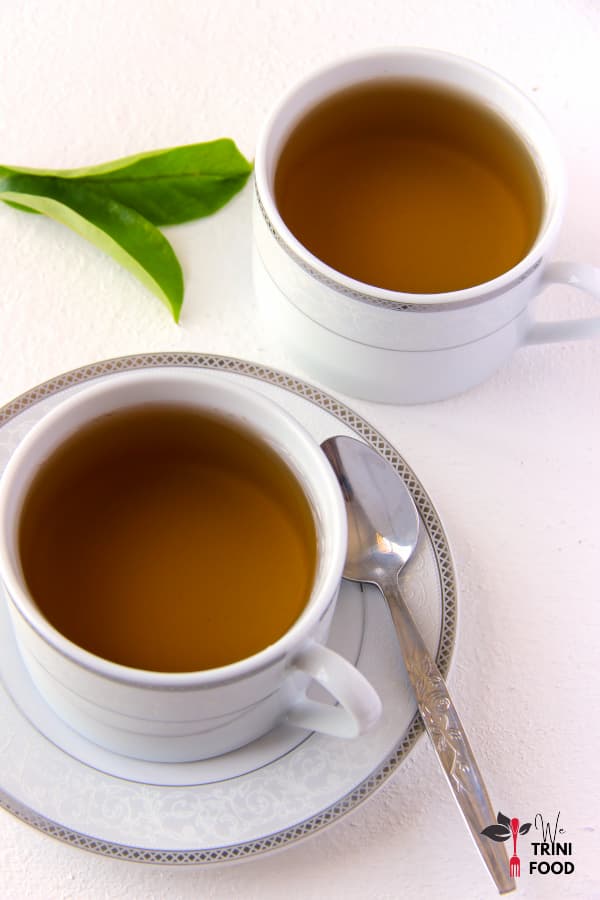

Lots of good advice here. I doubled the recipe and kept some in the fridge for a couple days. It stayed good and tasted great
Thanks alot for this info.
Luckily enough, I have several mature soursop plants in my land. I have been consuming the sweet juicy fruits since my childhood but I had no idea of soursop tea.
Once more thank you sharing this information that is so vital.